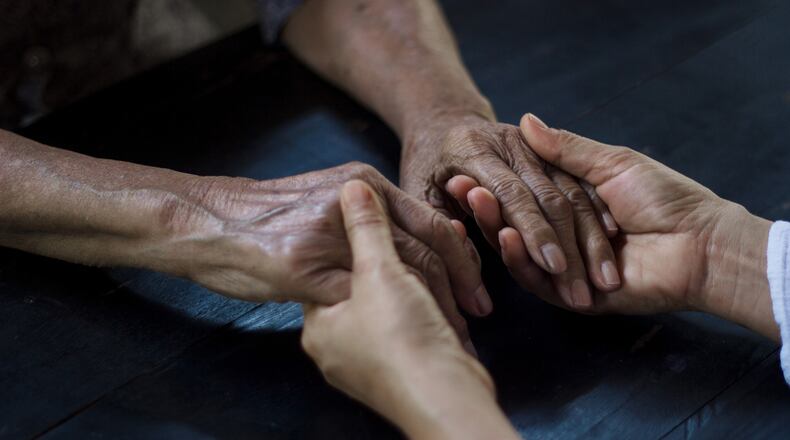After I retired, I chose carefully which organizations I wanted to be associated with as a volunteer. AARP, a respected entity which was first established over 60 years ago, was at the top of my list.
AARP is a nonpartisan advocate for older adults and their families. The organization advocates on a wide variety of issues at both the federal and state levels, all with the mission of helping people choose how they live as they age.
This year, AARP Georgia’s state legislative priorities include family caregiving, financial security and expanding access to broadband in rural areas of the state.
More specifically, AARP is advocating for the passage of House Bill 1304 – the Georgia Caregivers Act. Introduced by State Rep. Lee Hawkins, the bill is a no-cost commonsense way to support Georgia’s 1.2 million family caregivers. The bill allows a patient to identify a caregiver upon admission to the hospital who will be responsible for providing that patient’s care following discharge. The bill also requires hospitals to provide that designated caregiver with training on any medical or nursing tasks the caregiver will need to complete after the patient is discharged.
Credit: contributed
Credit: contributed
The Georgia Caregivers Act - and the training that will be provided to caregivers if that bill becomes law - is a critical component of comprehensive discharge planning. It’s not simply a quality-of-care issue, there is a financial incentive for the hospital as well. Medicare penalizes hospitals for excessive readmissions by lowering reimbursement rates for those readmissions. Providing caregivers with proper training prior to a patient’s discharge will help reduce these costly hospital readmissions.
As someone who cared for his wife, who had stage 4 cancer for 7 years before her death, I know the value of the Georgia Caregivers Act. I’m excited that the Georgia House passed this legislation unanimously and I look forward to the Senate doing the same soon.
In addition to supporting family caregivers, there must be more funding for home and community-based services that are designed to keep people in their homes as they age – and out of expensive nursing homes. Right now, there are more than 9,000 people on a waiting list to receive this kind of home care in Georgia, up 25% from just two years ago.
In partnership with Co-Age and other aging advocates, AARP Georgia is requesting funds in the state budget to support these needed services. The House answered our call and added $4 million for home and community-based services to the fiscal year 2023 budget. As an AARP Georgia volunteer, I will continue to advocate for these funds as the budget makes its way through Senate appropriations.
AARP is also supporting an effort designed to increase financial security in retirement. The “work and save” program as it’s called would provide employees with an easy way to save for retirement through work. About 53% of Georgia workers don’t have access to an employer-sponsored retirement savings plan. A work and save program would change that. Nearly 47,000 employers have implemented a work and save program nationally and there is interest in starting a voluntary program in Georgia.
In alignment with their focus on community livability, AARP Georgia is also supporting the expansion of broadband access in rural areas of the state. Under the infrastructure bill recently passed by Congress, funds were allocated to expand broadband access. While localities applied for and will receive the federal funding, there was not enough funding to support the demand in Georgia. AARP is supporting additional state-level funding efforts to ensure all Georgians have broadband access.
AARP has been committed to the health and financial security of Georgians 50-plus and their families for over 60 years. As an AARP volunteer and a senior myself, I sincerely hope that the Georgia General Assembly can address these priorities this year.
Jack Bernard, a former healthcare executive, was the first director of health planning for Georgia. He’s a former chairman of the Jasper County Commission.
Keep Reading
The Latest
Featured



